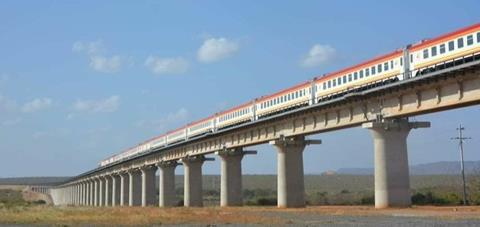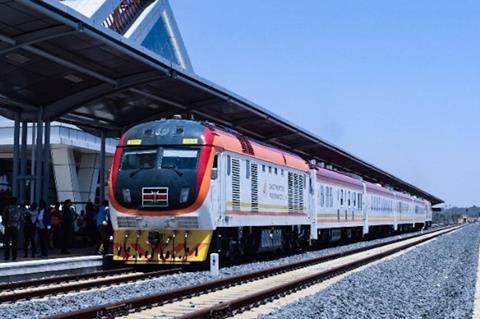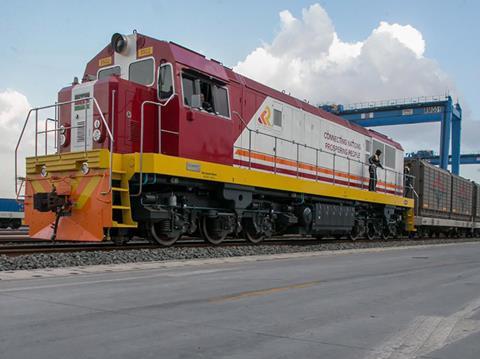
KENYA: The government has given notice that it intend to transfer control of operations on the country’s standard-gauge railway to Kenya Railway Corp from May 2022.
The line is currently being operated by Africa Star Railway Operation Co under a 10-year contract which includes an optional five-year break point. The 480 km Mombasa – Nairobi SGR was opened for passenger service in June 2017 and freight in January 2018, while the 120 km extension to Naivasha was inaugurated in October 2019.
Afristar is a subsidiary of China Communications Construction Co, the parent company of China Road & Bridge Corp which built the 1 435 mm gauge railway. The project was funded by the Export-Import Bank of China, which provided US$3·2bn for the first phase and US$1·5bn for the extension.
Under the initial agreement for CRBC to build the railway as part of China’s Belt & Road Initiative, the Kenyan government agreed that the Chinese should operate the line for 10 years, subject to review after five years. Kenya’s Solicitor General recommended that the operations and maintenance agreement be terminated after the High Court in Nairobi ruled last year that the original contract with CRBC had violated procurement laws.

‘We are transitioning from management by the Chinese contractor to Kenyan staff’, confirmed Transport Minister James Macharia, who insisted that said the ‘separation was mutual’. The Chinese embassy in Nairobi told local media that the transfer would be ‘a normal move according to their contract’.
As part of a localisation process envisaged in the original contract, Afristar appointed four Kenyans to senior positions in 2019, including its Deputy General Manager. The company was also required to contribute to the revitalisation and upgrading of Kenya’s Railway Training Institute, where new buildings are nearing completion in both Nairobi and Kisumu.
‘We have negotiated with the contractor so that we take over the running of the Standard Gauge Railway’, explained KRC Chairman Omudho Awitta, adding that the national railway was ‘prepared for it and we are ready to go’. KRC has taken responsibility for some aspects of the line’s operations with effect from March 1, he said, including security, ticketing and the refuelling of the diesel locomotives. Awitta anticipated that the phased transfer of responsibility ‘will go on smoothly to May 2022 when we take over all operations’.

Financial concerns
According to Kenya Railways, exercising the break option will save the country more than US$120m/year in payments to the concessionaire. Under the terms of the agreement, Afristar is paid an average of US$9·1m per month to operate and maintain the Mombasa – Nairobi line, with further costs for the extension. Awitta told local media that additional management fees, loading charges and fuel costs could lift the final figure to US$16·4m/month.
Last year the Kenyan legislature was told that these payments were US$380m in arrears, as the country struggled to service its debts from falling tax revenues. With both passenger and freight services temporarily suspended for part of 2020 as a result of the coronavirus pandemic, the Madaraka Express operations only earned US$110m in revenue for the year, a fall from US$120m in 2019. The SGR had already posted a cumulative operating loss of US$197·7m for the three years to May 2020.
Kenya has also faced problems servicing the loans used to fund construction of the railway. In January the Chinese government approved the deferral of US$378m in interest payments due in the first half of this year, including the first charges for the Naivasha extension. Meanwhile, repayment of the loans for the first phase is due to begin in July.

















